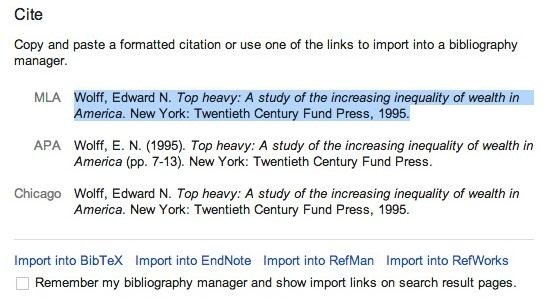I spend a lot of time talking to students about how to cite sources. It is something they worry about.
The thing I worry about is this: Do students understand why we cite sources?
Nature.com recently published this video that does a great job of showing us why citations are important to the people who originally wrote the stuff.
When working with international students, I have them write a paper on the subject.
When teaching first-year writing, I devote a lot of discussion time to exploring the question.
I don't like the "Cite or Be Punished" approach to this issue.
I don't think it is productive to remind students that there is an academic integrity enforcement squad watching, waiting for them to trip up.
Sure, that technique might keep some from plagiarizing out of fear of punishment, but there is a larger goal in writing instruction: Students are supposed to learn about writing as a social act that helps them gain access to a community.
 If that community is seen as a heavily policed minefield, then they are less likely to really engage.
If that community is seen as a heavily policed minefield, then they are less likely to really engage.So, in my classes, I first work to explain the value of good citations, how they help strengthen an argument.
Then I explain the way scholarly writers feel about having their work cited by others: That is what they are looking for when they write. They don't write to get paid; they write to get cited.
This is all meant to demonstrate how good citations are reinforced by a community's values, and to explain why professors think it's such a big deal.
I'm hoping to find a way to use this article and video from Nature.com in that effort.
It's a great piece on why citations are important.
Citations, in which one paper refers to earlier works, are the standard means by which authors acknowledge the source of their methods, ideas and findings, and are often used as a rough measure of a paper’s importance. Fifty years ago, Eugene Garfield published the Science Citation Index (SCI), the first systematic effort to track citations in the scientific literature. To mark the anniversary, Nature asked Thomson Reuters, which now owns the SCI, to list the 100 most highly cited papers of all time.
No comments:
Post a Comment